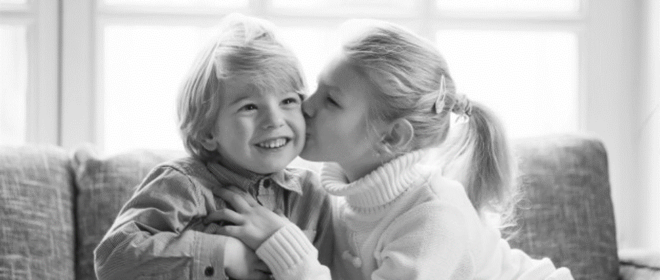The experience of growing up as an only child is very different from that of someone who’s grown up with siblings. And that holds true since there is a certain dynamic between siblings that influences them as they grow up. As young children, we learn social interactions within the family, and siblings contribute to each other’s development of social dynamics. In short, the way siblings interact with each other as children, influences the way they interact with other children outside their family, such as with classmates.
It’s a different story for siblings of children with Autism. For children living with a brother or a sister with ASD, the experience is more profound, and the dynamics are more complex. Being in a unique position, siblings of children with autism share the same set of challenges as with their parents-especially at a time where they are still navigating their childhood. Because of this, they develop resilience and compassion at a tender age.
Although this scenario is common for most siblings, this is not always the case. Parents need to provide the proper support, and ensure that they are educated so they feel respected and cared for in the same way as their sibling with Autism is supported and cared for. This way, they grow up to become advocates for their siblings.
For this year’s first blog, let’s shift our focus to the brave siblings who are usually in the background supporting their brother or sister with ASD. Let’s take the time to appreciate their roles in the lives of their special needs siblings with a few guidelines in addressing their needs.
Communication
Maintaining the communication as open, transparent and as honest as possible is critical for siblings. Parents have the responsibility to initiate communication and keep it ongoing. To effectively do this, parents should be able to address their own feelings first. Dealing with one’s own thoughts is important for effective communication.
Siblings need to feel comfortable to convey their thoughts and how they feel. Since they’re young, they are often reluctant to do so. This hesitation can be addressed by letting them feel that they are heard and that their opinions matter.
It is their right to be informed about their sibling’s condition. Children are naturally empathetic and easily pick up on emotions like sponges. Likewise, it is natural for them to feel anxious. And in this case, they are prone to worry about either being different themselves or feeling responsible for their sibling’s ASD. It may seem unusual but children do think about these things. Hence, it’s important to educate them.
Time
As a parent, it is a challenge to handle multiple tasks while also taking care of neurotypical and ASD children. It can get increasingly difficult but with the right support provided by learning centers, it becomes manageable, especially when you divide your time. The truth is parenting a child with ASD demands a major chunk of your time.
Siblings need to have consistent parental attention that validates them and celebrates their individuality. Parents need to let neurotypical siblings feel equally important and appreciated for their milestones much like their ASD siblings.
Self-esteem is developed when children feel valued and what better way for parents to show that they care than setting aside time for their children. Parents need to allocate enough time to spend with their neurotypical children. Siblings need to feel that they are also valued and their uniqueness is celebrated.
Environment
Siblings of ASD kids need to have an environment where they can learn to interact with their ASD brother or sister. Learning centers for children with ASD have the expertise and play-skills that can be taught to neurotypical siblings to have a successful interaction. This should be a part of their education in connection to teaching them about their brother or sister’s ASD.
In contrast to children with ASD, neurotypical siblings need to feel secure about their belongings. Some children under the spectrum can be destructive and it can be difficult to shift their focus. Apart from this, ASD children may have challenging behaviors that neurotypical siblings may find hard to understand. Parents need to establish a safe place for their belongings and a safe space away from their sibling’s aggressive behavior.
Opportunities
It is the parent’s responsibility to provide equal opportunities for both neurotypical and ASD siblings. For siblings, they need to have the opportunity to feel that they are not alone and there is a community out there that is facing the same set of challenges as them. The truth is there are several people who are growing up with the same experience.
Sibling support groups are common across the world. It is a safe space where they can express their feelings and receive acceptance from the same community. In a city like Dubai, learning centers are the best places to find the right support especially when it comes to ASD children and their siblings.
Siblings should also be provided with the opportunity to foster relationships with their neurotypical peers. Strategies should be taught to deal with the questions that their peers may throw at them.
Final Words
Siblings of ASD children may be the bravest, considerate and most understanding people you will ever come across. They are usually advocates of mental health awareness. Part of the reason why they grow up to become such people is the support and education they received as children. Addressing their needs while growing up is equally important.
Parents should not consider the fact that they are neurotypical and thus don’t require as much attention as their ASD siblings. Children are children no matter whether they’re neurotypical or not. Partnering with a therapy center like Pulse TLC can help parents provide the right care for both neurotypical and ASD children.


